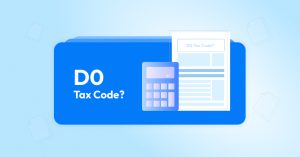Starting a business in the UK? Registering as self-employed can seem daunting, but it is a very straightforward process that entails calling HMRC.
Discover how to register as self-employed in the UK with our step-by-step guide! Whether you're a freelancer, small business owner, or startup founder, we've got you covered. Our comprehensive guide simplifies the process, making it stress-free and easy to follow. Dive into key requirements, uncover tax obligations, and explore essential tips to successfully kickstart your self-employed journey in the UK today!
How Do I Register as Self-Employed for the First Time?
If you've never embarked on the journey of self-employment registration before, worry not! Here's an easy-to-follow guide:
Start by setting up a digital HMRC Account
- Receive Your User ID: Once registered, you'll receive a user ID from HMRC.
- Visit the HMRC Online Portal: Log in and select “add a tax” followed by “Self Assessment.”
- Choose Your Business Type: Opt for “Sole Trader” from the available options like individual, partnership, or trust.
- Record Your Start Date: Note the exact date you started your self-employment journey.
- Provide Necessary Information: Include your National Insurance Number (find out how to get one if needed).
- State Your Profession: Let us know if you're a "security guard," "Uber driver," or "freelance designer."
- Review and Submit: Double-check your details and hit “submit.”
- Receive Your UTR Number: A Unique Taxpayer Reference (UTR) number will be mailed to you.
- Get Your Activation Code: Look out for another letter within 10 working days containing an activation code to secure your UTR.
- Prefer Paper? Download the SA1 form from the HMRC website. Fill it out and mail it, but remember it might take longer.
When to Register as Self-Employed?
Remember the Registration Deadline: October 5th!
Make sure to complete these steps on time to avoid any issues with your tax registration. Don't delay—ensure your self-assessment is set up correctly today!
How much Does It Cost to Register as a Self-Employed UK?
The great news is that registering as self-employed in the UK is entirely free! You don't need to pay any fees to register with HMRC and get your UTR number. However, be aware that you'll have tax obligations, as of April 2024 you are no longer obliged to a Class 2 NIC if you exceed a certain threshold in your earnings as a self-employed, which makes setting up as a self-employed even more attractive for many.
However; it doesn't mean that you don't have any tax obligations. See our guide to keep documents for self-assessment here.
What Happens If You Don`t Register as Self-Employed?
- Neglecting to register as self-employed can result in;
- Costly penalties and interest on late payments. You can see how a late payment penalty letter from HMRC looks like here
- Without proper registration, you miss out on benefits like income-based tax credits and contribution-based Jobseeker's Allowance.
- Potential legal troubles, including fines and prosecution, are also risks.
Registering as self-employed promptly is essential to avoid these issues and ensure a smooth and hassle-free experience. Don't delay—register today to take advantage of self-employment benefits and stay compliant with tax regulations!
Registering as a Self-Employed If You`re an Employee
Some individuals may have both employment and self-employment income streams. In such cases, you must register with HMRC for self-assessment to pay your taxes correctly. You will be liable to Class 4 National Insurance Contributions on top of the income tax owed if your sole trader profits exceed £9,569 per year.
Frequently Asked Questions About Registering as a Self-Employed
Q: Can I Register as Self-Employed Before Starting My Business?
A: Yes, you can! In fact, it is advisable to register with HMRC before starting your business or earning any income. This ensures that you're compliant from the start and avoids any penalties for late registration.
Q: Do I Need to Register for VAT as a Self-Employed?
A: If your annual revenue exceeds £90,000 (as of the 2024/2025 tax year), you will be required by law to register for VAT regardless of whether you are self-employed or not. However, if your income does not reach this threshold, you have the option to register voluntarily.
Q: Do I Need an Accountant to Register as Self-Employed?
A: No, it is not mandatory to have an accountant register as self-employed. However, it makes an enormous difference if you hire one. Ask away, try on us and see the difference. We are here to support your self-employed journey, so don't hesitate to reach out for assistance.
Q: What Happens Once I Register as Self-Employed?
A: After registering, you will receive a Unique Taxpayer Reference (UTR) number and activation code from HMRC within 10 working days. This will allow you to complete your tax return and pay the necessary taxes on your self-employment income.
Wrap Up
Now that you know how to register as self-employed in the UK, why wait? Follow these steps and kickstart your exciting journey today! Remember to keep track of your income and expenses for easy tax reporting and compliance. If you need help or have more questions, feel free to reach out to HMRC or a friendly accountant for support. Good luck! Stay tuned for more helpful tips on managing your self-employment journey in the UK. Cheers!













